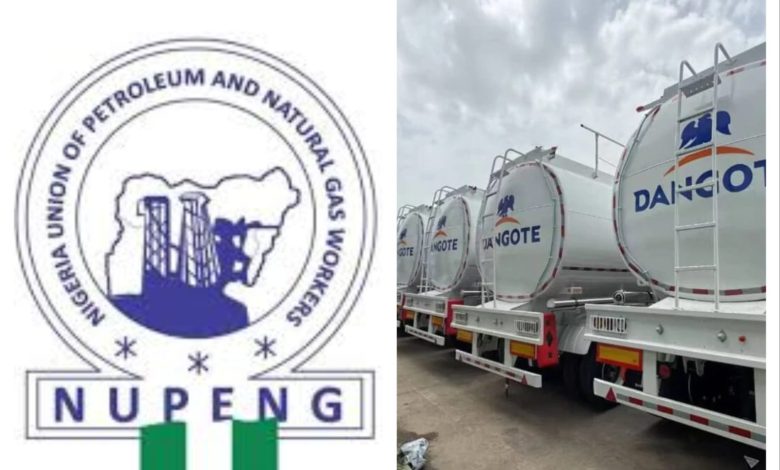
The Federal Government yesterday waded into the brewing industrial crisis in the petroleum sector by summoning leaders of the National Union of Petroleum and Natural Gas Workers (NUPENG) and officials of Dangote Refinery to an urgent meeting in Abuja.
The intervention followed NUPENG’s threat to embark on a nationwide strike today over what it described as Dangote Group’s “anti-labour posture,” particularly alleged moves to frustrate unionisation within its refinery operations.
NUPENG had earlier warned that such a policy was counterproductive and unacceptable in a sector that anchors Nigeria’s economic stability.
The strike threat triggered widespread concern, as it coincided with heightened economic hardship and fuel supply anxieties nationwide.
Analysts had warned that shutting down petroleum operations, even for a day, could paralyse fuel distribution, create scarcity, and inflict severe hardship on citizens, in addition to causing billions of naira in revenue losses.
To avert the looming disruption, the Minister of Labour and Employment, Muhammad Maigari Dingyadi, convened the conciliatory meeting, describing the situation as too critical to ignore. In a statement issued by the Ministry’s Head of Information and Public Relations, Patience Onuobia, Dingyadi appealed to both parties to embrace dialogue.
“I have invited all the parties for a conciliation meeting tomorrow, Monday, September 8, 2025. Since I have intervened, I plead with NUPENG to rescind their decision to shut down the petroleum sector from tomorrow. I also appeal to the NLC to withdraw the red alert it issued to its affiliate unions to be on standby for a nationwide strike,” the Minister said.
He stressed the strategic importance of the petroleum industry, noting that the sector “constitutes the core of the country’s economy.” Dingyadi warned that strikes in the industry would have grave consequences, including economic losses and untold hardship for ordinary Nigerians.
The Dangote Refinery, inaugurated in 2023 with high expectations of ending Nigeria’s decades-long reliance on imported refined fuel, has been at the centre of recent labour controversies.
Labour leaders insist that its management must not stifle workers’ rights to freedom of association, which is protected under Nigerian labour laws.
If the Abuja talks succeed, analysts believe the intervention could not only avert immediate fuel disruptions but also set a precedent for addressing emerging labour disputes in the oil and gas sector, particularly as the Dangote Refinery begins full-scale operations.
A deal would signal the government’s resolve to balance the interests of investors with workers’ rights, while reassuring Nigerians already burdened by economic pressures.
However, if the meeting ends in deadlock and NUPENG proceeds with its strike, the impact could be swift and far-reaching.
Long queues at filling stations, hoarding, and a spike in black-market fuel prices are expected, while businesses dependent on diesel and petrol for daily operations may grind to a halt.
Experts warn this could also worsen inflationary pressures, further straining household incomes.
The Nigerian Labour Congress (NLC), which had already placed its affiliates on red alert, may escalate its mobilisation if the talks collapse.
This could transform a sectoral dispute into a nationwide industrial showdown, intensifying the political pressure on President Bola Tinubu’s administration.
Labour activists argue that the crux of the matter goes beyond Dangote Refinery alone.
They insist it is about reinforcing workers’ constitutional right to unionise, a cornerstone of industrial relations.
“If workers at Dangote are denied this right, it sets a dangerous precedent for the entire private sector,” one union source warned.
On the other hand, industry watchers note that the Dangote Group, as the single most significant private investment in Africa’s energy sector, may be wary of union activities disrupting early operations.
They suggest that the company’s management could be seeking to protect its billion-dollar venture from labour unrest at a critical take-off stage.
As negotiations open in Abuja, the stakes remain high. The outcome will not only determine whether Nigerians wake up to fuel scarcity or relief but will also shape the broader narrative of how the government manages the delicate balance between big business interests and organised labour in a fragile economy.




